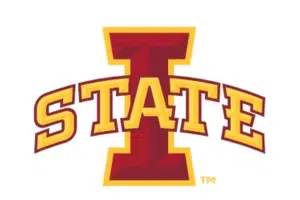(Des Moines) The Iowa law prohibiting school libraries from having books containing sexually explicit material can go into effect, federal appeals court judges ruled Friday.
The three-person panel moved to lift the injunction blocking the law from enforcement Friday. Portions of the 2023 law were previously blocked in January by U.S. District Court Judge Stephen Locher. The U.S. Court of Appeals for the Eighth Circuit ruled that Locher’s decision was based on a “flawed analysis of the law.”
The law prohibits school libraries from including books with written and visual depictions of sex acts from, in addition to banning instruction and materials involving issues of “gender identity” and “sexual orientation” for students in kindergarten through sixth grade. These regulations will now be allowed to take effect as legal challenges continue.
The law is being challenged by multiple parties, including the American Civil Liberties Union of Iowa, Lambda Legal, Iowa Safe Schools, as well as the publisher Penguin Random House and authors who have had their books removed from school libraries due to the law.
Iowa State Education Association President Joshua Brown said in a statement that the organization was “disappointed” by the appeals court decision.
“Banning essential books in our schools is a burden for our educators, who will face punishment for not guessing which book fits into a supposed offensive category, and for our students, who are deprived of reading from great authors with valuable stories,” Brown said in a statement. “If Iowa’s elected leaders truly valued education professionals, they would leave important classroom decisions to the local school districts and the experts who work in them – not make what we teach our students a game of political football.”
Critics of the measure say that the law will keep classic literature — like the books “Brave New World” and “Ulysses” — from being available in school libraries, but that a majority of the books removed from school shelves are those focused on stories about race and LGBTQ+ issues, like “Gender Queer,” “All Boys Aren’t Blue,” and “The Color Purple.”
Educators have criticized the state for not clarifying the rules surrounding the law, as the Iowa Department of Education did not respond to advocates’ request to provide more information on what materials are considered “age-appropriate” under the law. The state department has said they plan to address allegations of noncompliance on a case-by-case basis.
But Iowa Attorney General Brenna Bird said the appeals court decision was a win for Iowa parents.
“We went to court to defend Iowa’s schoolchildren and parental rights, and we won,” Bird said in a statement. “This victory ensures age-appropriate books and curriculum in school classrooms and libraries. With this win, parents will no longer have to fear what their kids have access to in schools when they are not around.”
Gov. Kim Reynolds also released a statement supporting the court opinion.
“Today, the US Court of Appeals for the Eighth Circuit confirmed what we already knew – it should be parents who decide when and if sexually-explicit books are appropriate for their children,” Reynolds said. “Here in Iowa, we will continue to focus on excellence in education and partnerships with parents and educators.”
The lawsuit found that the district court decision did not properly evaluate the law under existing precedent — referring specially to the 2024 U.S. Supreme Court decision in Moody v. NetChoice, a lawsuit involving speech on social media platforms. However, the judges also rejected the state’s argument that school library materials constitute “government speech.” They also found that a transgender student whose school district banned gender-sexuality alliance clubs due to concerns about the law has standing to sue.
The ACLU of Iowa, alongside Lambda Legal and the Jenner & Block law firm, plaintiffs in the lawsuit, issued a join statement saying that Iowa families and LGBTQ+ students were “deeply frustrated and disappointed” by the court’s decision, especially as the 2024-2025 school year approaches.
“Denying LGBTQ+ youth the chance to see themselves represented in classrooms and books sends a harmful message of shame and stigma that should not exist in schools,” the legal organizations said in the statement. “We are, however, encouraged by the Eighth Circuit’s complete rejection of the State’s most dangerous arguments, and we look forward to renewing our request for relief from this law’s damaging and unconstitutional effects on LGBTQ+ students. … We will ask the district court to block the law again at the earliest opportunity.”
The decision returns the case to district court for further action.













